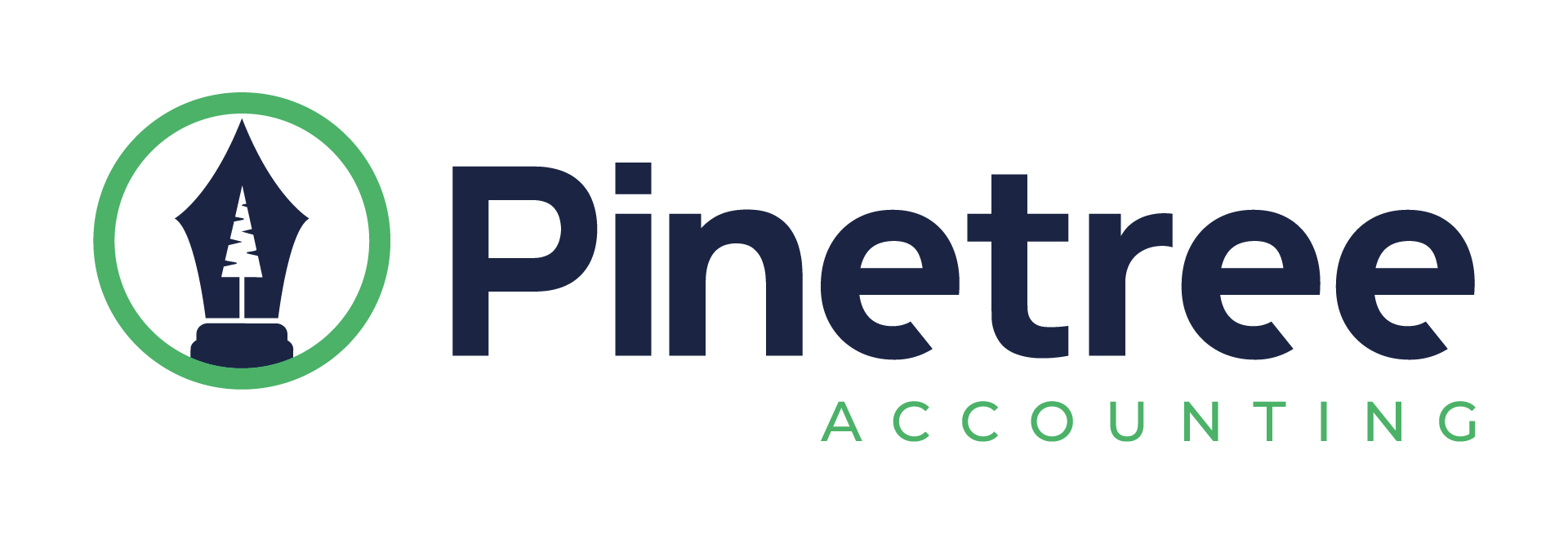TL;DR
Hong Kong consultants deal with irregular project-based income, strict tax compliance, and high operational costs, with 72% of professional services SMEs citing financial management as a major issue per 2024 Trade and Industry Department surveys. Adopt automated bookkeeping, ensure IRD and MPF adherence, and apply practical tips to enhance efficiency—Pinetree.hk’s specialized services like payroll and tax solutions can help consultants focus on client work while maintaining financial health.
Introduction: Navigating Financial Complexities in Hong Kong’s Consulting Industry
Hong Kong’s consulting sector is a powerhouse, encompassing over 15,000 firms that contribute significantly to the professional services industry, which generated HK$250 billion in revenue in 2023 according to the Census and Statistics Department. These businesses range from management advisors and IT specialists to financial consultants, often operating on project-based contracts that bring both opportunities and challenges. The unpredictable nature of income streams, combined with the need to manage client expectations in a fast-paced market, can create substantial administrative burdens. In fact, 72% of these SMEs identify financial organization as their primary challenge, as detailed in the Hong Kong Productivity Council’s 2024 report on professional services, leading to issues like delayed payments, compliance penalties, and hindered growth in a competitive landscape where quick turnarounds are essential.
This financial strain is exacerbated by Hong Kong’s unique business environment, including high costs in districts like Central and Tsim Sha Tsui, where consultants must balance client acquisition with regulatory demands such as IRD filings and MPF contributions. Pinetree.hk steps in with tailored support, offering services that address these pain points directly and help consultants maintain focus on their core expertise. In this comprehensive guide, we’ll explore the major hurdles, proven strategies, actionable tips, and answers to frequently asked questions. Whether you’re a solo practitioner in Wan Chai or leading a growing firm in Causeway Bay, these insights, backed by government data and industry benchmarks, can help you build a more resilient financial foundation.
Major Financial Hurdles for Hong Kong Consultants
1. Fluctuating Income from Project-Based Work
In the consulting world, revenue can fluctuate dramatically, with variations of up to 60% between quarters as reported in the 2023 Inland Revenue Department business income statistics. This irregularity stems from the project-based nature of the work, where contracts might last from a few weeks to several months, making consistent budgeting a constant struggle. According to the Federation of Hong Kong Industries’ SME survey, 50% of consultants experience cash flow gaps, particularly during economic slowdowns or between major projects, which can delay investments in marketing or technology upgrades essential for staying competitive.
High operational costs further compound the problem; for instance, office space in prime areas like Central averages HK$200 per square foot according to the Rating and Valuation Department, putting pressure on consultants to maintain reserves. Without proper forecasting, businesses risk operational disruptions, such as inability to hire temporary staff for peak demands or missing out on new client opportunities due to financial constraints.
2. Stringent Tax and Regulatory Compliance
Hong Kong’s tax system, while business-friendly, demands meticulous attention, with the Inland Revenue Department imposing a two-tier profits tax rate: 8.25% on the first HK$2 million of assessable profits and 16.5% thereafter. Additionally, the Mandatory Provident Fund (MPF) scheme requires 5% employer contributions, achieving over 90% compliance across the workforce as per the MPF Schemes Authority’s 2024 figures. However, 65% of professional services firms encounter audit-related issues, as noted in Labour Department reports, often due to overlooked details in expense deductions or international income reporting.
For consultants handling cross-border projects, complexities like transfer pricing rules add another layer, potentially triggering penalties that can reach HK$50,000 for non-compliance. This regulatory maze diverts valuable time from client-facing activities, emphasizing the need for streamlined processes to avoid financial setbacks.
3. Managing High Overhead and Expense Tracking
Consultants typically allocate 25% of their revenue to travel and technology expenses, based on Productivity Council benchmarks, while salaries for mid-level professionals average HK$40,000 monthly. Unfortunately, 40% of these businesses overspend by 15% due to inadequate tracking, leading to significant profit erosion as highlighted in 2024 SME financial health studies. Expenses like software subscriptions, client meetings, and marketing campaigns can quickly accumulate, especially in a digital-first era where tools for data analysis are indispensable.
Without systematic categorization, hidden costs—such as professional indemnity insurance or continuing education—can inflate overheads, making it harder to claim legitimate deductions during tax season and ultimately affecting the bottom line.
4. Payroll and Freelancer Management Challenges
Many consulting firms rely on freelancers, who make up 55% of the workforce in smaller operations, introducing variability in payroll processing. Under the Employment Ordinance, overtime must be compensated at 1.5 times the regular rate, yet 35% of firms report discrepancies in calculations, according to 2023 Labour Department data. MPF contributions for variable income earners add further complexity, often leading to errors that impact compliance.
This not only affects staff retention in a talent-scarce market but also increases the risk of disputes, with 25% of cases stemming from payroll issues as per industry reports.
5. Scaling Finances Amid Business Growth
As consulting firms expand, administrative workloads can increase by 30%, per Census and Statistics Department data on SME growth patterns. Integration of financial systems lags in 45% of cases, creating bottlenecks that hinder scalability in Hong Kong’s dynamic economy, where rapid adaptation is key to securing larger contracts.
Effective Strategies to Streamline Consulting Finances
Leveraging Advanced Bookkeeping for Accuracy
To combat financial disarray, implement digital bookkeeping systems that log project fees and expenses in real time, reducing errors by 40% as evidenced by 2024 tech adoption statistics from the Information and Communications Technology sector. These tools can link seamlessly with CRM software for automated invoicing, ensuring bills are sent promptly and payments are tracked efficiently. Pinetree.hk’s professional bookkeeping services in Hong Kong are particularly beneficial for consultants, offering customized setups that handle multi-currency transactions common in international projects and generate monthly reports to identify cash flow trends early.
With adoption rates among SMEs reaching 70% according to government stats, this approach not only supports better decision-making but also frees up substantial time for client acquisition and service delivery.
Ensuring Seamless Tax and Compliance Handling
Automating IRD filings to meet November deadlines for individuals and partnerships is crucial, while leveraging MPF portals ensures accurate contributions and avoids the 5% late payment fee. Pinetree.hk’s Hong Kong tax filing specialists excel in optimizing deductions, such as full claims on professional development expenses, potentially reducing tax liability by up to 20% for eligible firms. Staying abreast of global minimum tax rules is essential for those with multinational clients, with over 600 firms benefiting from similar optimizations in 2024.
By building compliance into daily operations through regular updates and automated reminders, consultants can significantly cut penalty risks by 80% and maintain a strong regulatory standing.
Controlling Costs Through Smart Expense Management
Classify expenses into billable (30%) and non-billable (70%) categories to gain clarity, with regular audits revealing savings opportunities of 18% per government benchmarks. Pinetree.hk’s audit preparation services for Hong Kong SMEs provide detailed reviews that benchmark against peers using Statistics Department data, helping negotiate vendor contracts annually for better terms. This strategic method enhances profitability margins by 12%, while monitoring remote work costs—which have risen 12% post-pandemic—ensures no unnecessary expenditures slip through.
Simplifying Payroll for Dynamic Teams
Automate payslips and deductions for freelancers to ensure precision, especially with MPF requirements for those earning over HK$7,100 monthly. Pinetree.hk’s Hong Kong payroll compliance solutions manage variable pay structures effectively, reducing processing time by 60% and improving accuracy for bonus calculations. Achieving the 98% enrollment rate mandated by law, this service supports team motivation and retention, minimizing disputes in a competitive field where payroll tech adoption stands at 65% among education and professional SMEs.
Building a Scalable Financial Foundation
For new or expanding firms, starting with proper registration provides liability protection, a step utilized by 80% of new consultancies. Pinetree.hk’s Hong Kong business registration experts guide this process, enabling seamless scaling with cloud integration that handles 25% revenue increases without hitches. Planning for expansions using economic forecasts from reliable sources ensures long-term viability.
8 Practical Tips for Hong Kong Consultants’ Financial Management
- Invoice Promptly: Send bills within 7 days to maintain 85% on-time payments, per SME cash flow studies.
- Forecast Quarterly: Predict income based on 60% project variability from IRD data.
- Automate Deductions: Use tools for 100% MPF accuracy, avoiding 5% penalties.
- Categorize Expenses Weekly: Save 15% by tracking per Productivity Council tips.
- Review Contracts Annually: Negotiate for 10% cost reductions in services.
- Build Emergency Reserves: Aim for 3 months’ expenses, matching 70% of stable SMEs.
- Use Multi-Currency Accounts: Handle international clients, reducing fees by 8%.
- Conduct Compliance Checks: Quarterly reviews cut audit risks by 50%.
Pinetree Hong Kong company compliance management can assist.
Common Questions on Consulting Finances in Hong Kong
Q: What profits tax applies to consultants?
Two-tier: 8.25% up to HK$2 million, 16.5% after, per IRD guidelines.
Q: How many consulting firms operate here?
Over 15,000, contributing HK$250 billion annually, from Census 2023.
Q: MPF requirements for freelancers?
Mandatory if earning HK$7,100+ monthly, with 5% contributions.
Q: Handling international income?
Report via IRD forms, with 20% of firms facing transfer pricing issues.
Q: Best way to track billable hours?
Digital tools for 95% accuracy, reducing disputes.
Q: Growth funding options?
SME loans from banks, with 40% approval rates per government schemes.
Q: Penalty for late tax filings?
Up to HK$10,000 initially, escalating per IRD.
Empower Your Consulting Business with Strong Finances
Take charge of your finances to prioritize client success.
Pinetree.hk provides comprehensive support for Hong Kong consultants.
Contact us:
- Email: preeti@pinetree.hk
- Phone: +852 5929 1766
- Address: 14 Science Museum Road Tower A, New Mandarin Plaza, Unit A313, Tsim Sha Tsui
- Hours: Monday – Friday: 9am – 6pm
Book a free consultation to discuss tailored solutions.
Our central location ensures easy access.
Consulting Cost Breakdown Table
| Cost Type | % of Total Expenses | Source | Savings Strategy |
|---|---|---|---|
| Salaries & Freelancers | 35% | Labour Dept 2024 | Automate payroll for 25% efficiency |
| Travel & Client Meetings | 20% | Productivity Council | Virtual options to cut 15% |
| Tech & Software | 15% | Census Statistics | Bulk subscriptions save 10% |
| Marketing & Networking | 15% | SME Surveys | Digital campaigns for 20% ROI boost |
| Office & Admin | 15% | Rating Dept | Remote work reduces 12% |






